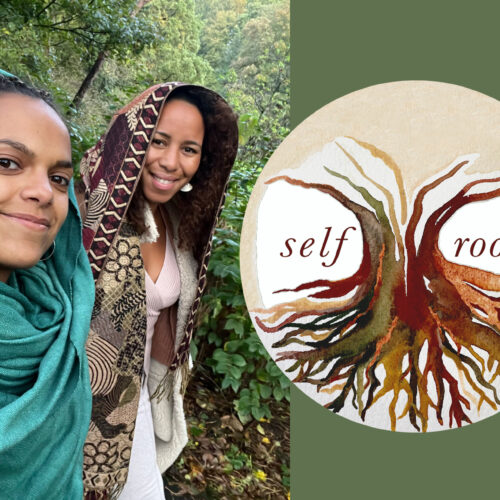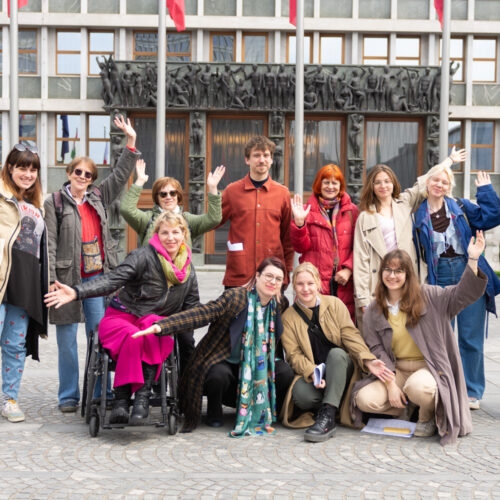Five key takeaways from Josef Lentsch’s new book, “Political Entrepreneurship”.

“The art of transformation from within is to learn to work the system without becoming a part of it”, this quote lingers with me, after finishing Josef Lentsch’s book, Political Entrepreneurship – ‘How to build successful centrist political startups’, and I’m left with this age-old question, wondering whether it is possible to alter a system without becoming a part of it.
Instant flashbacks of “Boss” come flooding in, a political drama series the cancellation of which after two seasons is to this day probably one of the grossest injustices in television history. The show revolved around Mayor of Chicago and how the political system always managed to break those with the best of intentions, forcing them to either compromise their ethics or leave the game.
Reading Lentsch’s book offers a silver, motivational lining to the rapidly changing landscape, of European politics, namely that new political start-ups having a fighting chance to do things differently while actually getting seats in parliament.
Lentsch tells the story of European centrist political start-ups like Ciudadanos, En Marche and NEOS, in a format that hybridizes a memoir with an academic textbook and a campaigning workshop. The political start-ups he explores, ‘do not only practise a different politics, they practise politics differently’. Having worked on it as an editor, I was lucky enough to get an early manuscript of the book and as it is yet unreleased, you can follow publication updates here: https://www.political-entrepreneurship.com/ in the meantime, a few fabulous nuggets I offer you now as an amuse-bouche:
Sunlight is the Best Disinfectant
Louis Brandeis, the famous American lawyer, wrote that ‘sunlight is the best disinfectant’ back in 1914. In Austria, NEOS, a liberal political party, provides transparency well beyond what is legally required. To date, it is the only parliamentary party to offer real-time transparency (in practice, with a time lag of a few weeks, for accounting reasons). All revenues including donations, but also all expenses from travel to office supplies are listed on a public website.
That applies as much to the party as it does to the parliamentary group and their think tank NEOS Lab. Furthermore, this information is provided as Open data on the public platform Open Data Portal Austria. No other Austrian parliamentary party so far has been willing to follow suit. The lesson here? If you are transparent with the public it will certainly help gain peoples’ trust and if nothing else, it will make it clear who else has something to hide.

“If you are transparent with the public it will certainly help gain peoples’ trust and if nothing else, it will make it clear who else has something to hide.”
Culture Eats Strategy for Breakfast
Management guru Peter Drucker often espoused this phrase, and Lentsch shows us just how true it is in the political startup context. This is something community organizers are all too familiar with, the importance of gaining trust in a familial setting, so NEOS conducted, over two hundred “NEOS@home” events quite literally in people’s living rooms all over Austria. They self-ironically called them “Political Tupperware Parties”, as they were metaphorically ‘selling’ their candidates, until they received a courteous and formal letter from Tupperware, asking them to kindly abstain from using their brand in a political context.
The format “NEOS at home” was a raging success. It arose, from frugal innovation and the team did not have money for expensive event planning. Also, “they knew that Austrians were not necessarily comfortable debating politics in public, and much less to show themselves aligned with a political start-up” that most people thought had zero chance to enter Parliament.
Lentsch lets us in on the cultural clarification, that this political unease “dates back to the Biedermeier period in the first half of the 19th century, when chancellor Metternich ran an authoritarian surveillance state. The only place people felt secure enough to discuss public matters was in private. This led to creation of the Viennese tradition of the Salon.” Back then, usually upper-class hosts invited a small circle of people from society such as authors, artists and businessmen into their home, thus much like in France, the Viennese Salons became important idea hubs for cultural and intellectual development. Therefore we see NEOS, a civic movement which advocates a friendly revolution of the political system, becoming a contemporary version of that modus operandi.

If in Doubt Go For Hot Pink
Colours have had instrumental significance in political movements ever since warpaint. Lentsch remembers the very beginning when the NEOS crew came together to work on the start-up’s aesthetic design and how they were debating whether to ‘break the colour rule altogether, by either going for white or for a rainbow’. Yet both options turned out to be impractical, as fellow NEOS member, Feri Thierry recollects, “White was non-executable, Rainbow was too complicated, and then it was between Petrol and Pink. Pink was highly controversial – there were people who said, if it is Pink, I am out of here. Some said, with Pink we become the gay party, we can’t do that.” But in the end, they went for it. Emotions, of course, ran high when the group settled for Pink and some people did indeed leave the movement thereafter. However, despite the reactions and the drama, “the colour soon became a heavily endorsed symbol for NEOS, both positive and progressive”.

Be Never-Not-Learning
According to the Polish political scientist Małgorzata Bonikowska, a key reason behind the downfall of the centrist Civic Platform in 2015 was that it had stopped learning: “It didn’t happen immediately. While in power, both parties in coalition, Civic Platform and the People’s Party PSL, got stuck in their own bubbles. It was like a closed circle. And within the party itself, especially Civic Platform, there were not many newcomers with new ideas. They had good advisers, who made very good analyses. But nothing happened after that, it was just paper”. Civic Platform suffered its worst result in a parliamentary election in ten years, ending eight years of political dominance, because as Bonikowska said “once you are in power, you lose orientation. You are so used to be a minister or a parliamentarian, that average people don’t interest you anymore.” They stopped listening, they stopped learning and they were toast.

Listen Loudly
Guillaume Liegey, who had worked on Obama’s campaign, recalls in the book that he was passionately advocating in favour of La Grande Marche, the massive door-to-door, volunteer recruitment march, that provided the momentum for Macron’s nascent party,
He says “something that never has been done is using door-to-door not to try to persuade people, but to listen to them. This is an idea Arthur Muller, Vincent Pons (his two partners at LMP) and I had a long, long time ago for Hollande’s campaign. Because after that campaign, we wrote a book, “Porte-a-porte” (Door-to-Door), and at the end of the book, in the conclusion, we wrote what could be lessons of this campaign for governing. We wrote, when you govern, it is important to maintain a relationship with the people. And we mentioned this idea of using door-to-door as a way of keeping relationships with people locally.”
The group understood they could use this for building relationships and not just hunting for votes, and it was also an opportunity to ask people questions so they developed an essential questionnaire of eight open questions:
-
If you had a wish towards politics, what would it be? (be concrete)
-
Tell us of a concrete initiative in your neighbourhood that you want people to know about, and that you want to strengthen?
-
In your opinion, what works well in France?
-
And what doesn’t work?
-
What was the best experience you made since 2015?
-
And what was the worst?
-
What worries you regarding your personal future?
-
What is your biggest source of hope regarding your personal future?
Adventures in Activism
This article first appeared as part of the “Adventures in Activism” series. A defiant column letting you in on who the coolest cats of today’s rebel alliance are, why grassroots movements matter more than ever, and what radical systemic re-envisioning is being done by badass activists around the world. For more articles like this, go here.




